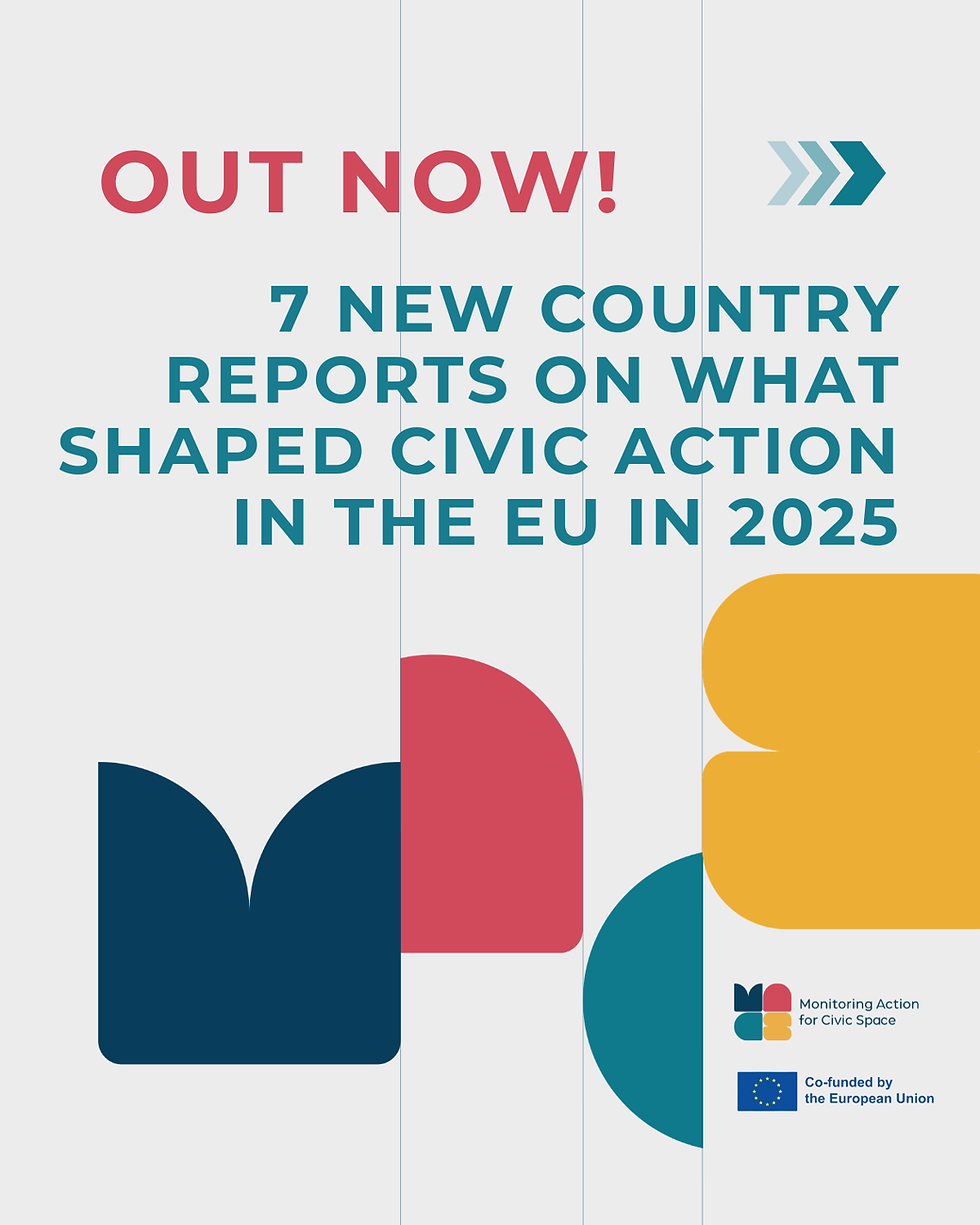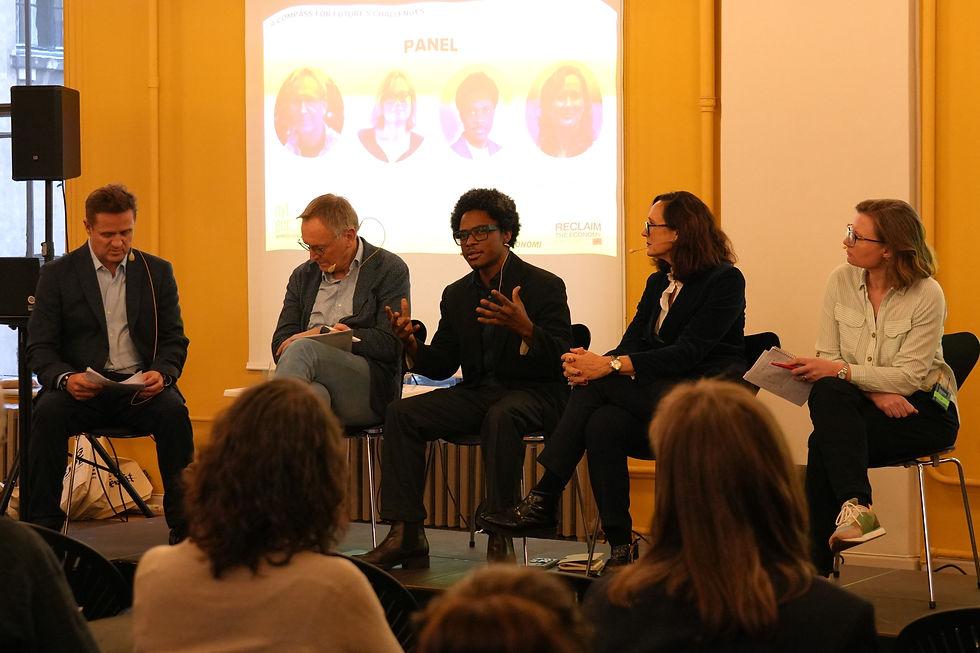Bottom-Up Perspectives for a Europe on Top
- 19. nov. 2019
- 6 min læsning
Opdateret: 8. feb. 2021
By Charlotte Christine Gloerfelt-Tarp and Marlene Paulin Kristensen
“Ladies and Gentlemen, when people overthrew their regimes in the East in 1989, they did so because they wanted a better future for themselves and their country. Just as we look back on the year 1989, the next generation will be measuring us in 30 years to see if we, today, managed to show the courage to change.“
So said the President-elect of the European Commission, Dr. Ursula von der Leyen, in one of her first public speeches – the annual “State of the European Union” speech (Europa-Rede), organised by the Konrad Adenauer Stiftung on November 8, 2019. It is safe to say that 30 years after the year 1989 and Fukuyama’s infamous declaration of ‘the end of history’, the future is again prominently placed on the European political agenda, and in her speech, von der Leyen portrayed a Europe on top and ready for the future.
Europe – a historical victory
Von der Leyen’s main purpose in her Europa Rede speech can be interpreted, more than anything, as an attempt to reinstate the confidence and self-esteem of European member states and their citizens. ‘Together we are stronger’ is indeed still the central logic of the Europe that von der Leyen wishes to promote in the years of the next European Commission and fall in line with recent tendencies in the Europe facing her Commission. Popular engagement in Europe is strong according to the Eurobarometer Post-Election Survey 2019: Citizen support for the EU is, at 68%, at its highest since 1983 and voter turnout for the European elections of the spring was at its highest since 1994 – primarily due to young and first-time voters visiting the ballots. Throughout her speech, von der Leyen reminded her fellow citizens that European societies and ways of life are admired and desired by people all over the world; that we have something, which is invaluable, namely the values of European liberal democracies: rule of law, freedom, democracy, and openness to diverse lifestyles. ‘The world needs Europe’, she proclaimed, highlighting e.g. the GDPR regulation as a gift from Europe to the world.
Speaking just a day before the 30 year-anniversary of the fall of the Berlin Wall, however, von der Leyen also emphasised how the Europe of today and of the future is rooted in shared history and experiences. November 9 also marks the beginning of the November revolution, which ended the German monarchy in 1918, and the date of the Kristallnacht, the state-initiated pogrom against Jewish citizens during the Nazi regime. Von der Leyen told the story of November 9 as a day of dualities – of hope and shame, courage and cowardice, human greatness and fall – and a day, which symbolises the contradictions of both German and European history. What ties this history together and renders it a strong foundation for today, according to von der Leyen, is the power and victories of the ‘common idea’ of Europe. Von der Leyen thus opened her speech by inviting history and ambiguity into her speech, but as the speech progressed, these nuances unfortunately faded.
Where did the nuances go?
Early in her speech, von der Leyen underlined the importance of NATO for the EU however reminding her audience that NATO is what its member states make of it. This followed recent comments from the French president, Macron, that Europe needs to reformulate its role in the world. Von der Leyen was preoccupied with this as well, declaring that Europe must learn “die Sprache der Macht” (the language of power). This is to be understood as ‘building its own muscles’, e.g. in security policy, and using ‘existing force’, e.g. in trade policy through enforcement of European values in social, environmental and product standards or regulation. ‘Soft power’ was mentioned only as half of the equation and inadequate on its own – even as obtaining political influence through cultural appeal has historically been characteristic of European power, e.g. through ENP and democracy programmes.
Likewise, traditional lines of power dominated. In her depiction of Europe’s role in the world, von der Leyen presented a surprisingly selective world map, on which the EU will navigate. Outside Europe, only Russia, China, and the US are explicitly mentioned – subtly in the negative. Cooperation, development and common grounds with the Global South were completely neglected in this speech. This despite existing strategic cooperation with UNASUR, AU, ASEAN etc., and more importantly, without recognition of Europe’s full historical role in the world. Europe indeed means freedom, democracy and human rights; but Europe has also meant imperialism and protectionism. That von der Leyen’s speech completely failed to pay homage, let alone mention, relations and alliances to the Global South, was a lost opportunity to show that the EU understands the need to create a future with others, and not for others.
As regards the EU Internally, von der Leyen contended that Europe faces both supposed and substantial challenges but framed them as opportunities for Europeans to grow stronger together, as the ‘common idea’ of Europe stands unbroken. Indeed, a European common position and unity among member states has arguably been consolidated despite fears of disintegration. As mentioned, popular support for the European project is historically strong. However, the BREXIT saga, nationalism and populism have made their marks across the continent and continue to do so. Also, member state challenges to the liberal democratic core principles and values of the EU are met with somewhat disorganised opposition. Failing to address and find a language through which to discuss these developments within the EU could prove dangerous for the unity of the community, which von der Leyen had just appreciated as central to European strength.
Also, in her depiction of Europe as a frontrunner in the creation of a green and sustainable future, von der Leyen left out important nuances. By stating that Europe is ‘only responsible for 10% of global greenhouse gas emissions’, she glossed over the fact that, if measured per capita, European citizens are among the most polluting in the world. Further, she declared the EU to be the first CO2-neutral continent by 2050. Let us, however, not forget to mention that multiple voices in the climate debate have called for concrete measures and policies in order to reach this goal and fulfil the EU’s obligations under the Paris agreement.
A Future of Optimism – a Europe from the bottom-up
However, where the lack of historical awareness and nuances perhaps stood clearest was in the lack of mentioning citizens and civil society. Von der Leyen did indeed initially mention the courage of the people, and their indispensable belief in freedom and in a better future, as the factor that led to the communist regimes’ fall 30 years ago. And von der Leyen stressed how today, too, courage is needed: courage to fight for Europe’s values and to take our future into our own hands. However, particularly ironically given that the Europa-Rede was held directly following the conference “30 years after the fall of the wall – Europe from the bottom up”, von der Leyen did not actively address the role and courage, ideas and concerns, of citizens and civil society. The necessary future courage and transformations, which von der Leyen mentioned, was quite oppositely rooted in institutional and state levels. These are indeed needed and welcomed, but Europe is also, and has always been, created, sustained and supported by its citizens and its active civil society. As von der Leyen underlined, alone, not one EU member country exceeds 1% of world population – however, together, the 500 million Europeans constituting more than 40% of the world’s BNP and the world’s largest, common market. Europe, and its strength, is ultimately made of people.
In 1989, the future was created by persistent citizens, who took to the streets, organised in popular movements, and demanded freedom. And today, it is the insistence and persistence of (young) climate activists, which has managed to get the climate to be on the top agenda of the new, European Commission. It is therefore fitting and promising that von der Leyen, in her opening statement in the European Parliament in July 2019, states that “I want European citizens to play a leading and active part in building the future of our Union. I want them to have their say at a Conference on the Future of Europe, to start in 2020 and run for two years.”, an ambition reiterated in her strategy paper, which invites the conversation on Europe’s future to include both citizens and civil society.
Let us hope that the President-elect will encourage a European future of optimism built on the values of European liberal democracies, to be shaped from ‘the bottom up’, and that both she and her Commissioners will pay attention to the concerns and ideas of civil society initiatives and engaged citizen.
—
Charlotte Christine Gloerfelt-Tarp holds a MSc. in International Business and Politics from the Copenhagen Business School and Marlene Paulin Kristensen holds a PhD in Ethnology from the University of Copenhagen. They work for the Danish non-profit organization NYT EUROPA, and are currently engaged in the EU-Commission funded project ‘History of Optimism: civil society shaping the positive future’, which together with German and Polish partners uses the fall of the Berlin Wall in 1989 and the enlargement process in 2004 as points of departure to discuss the role of civil society in European history. For more information, see: https://nyteuropa.dk/history-of-optimism/
__
Dette indlæg er blevet bragt på Wir Sind Europas blog.
Se dette link for at besøge hjemmesiden.





Kommentarer